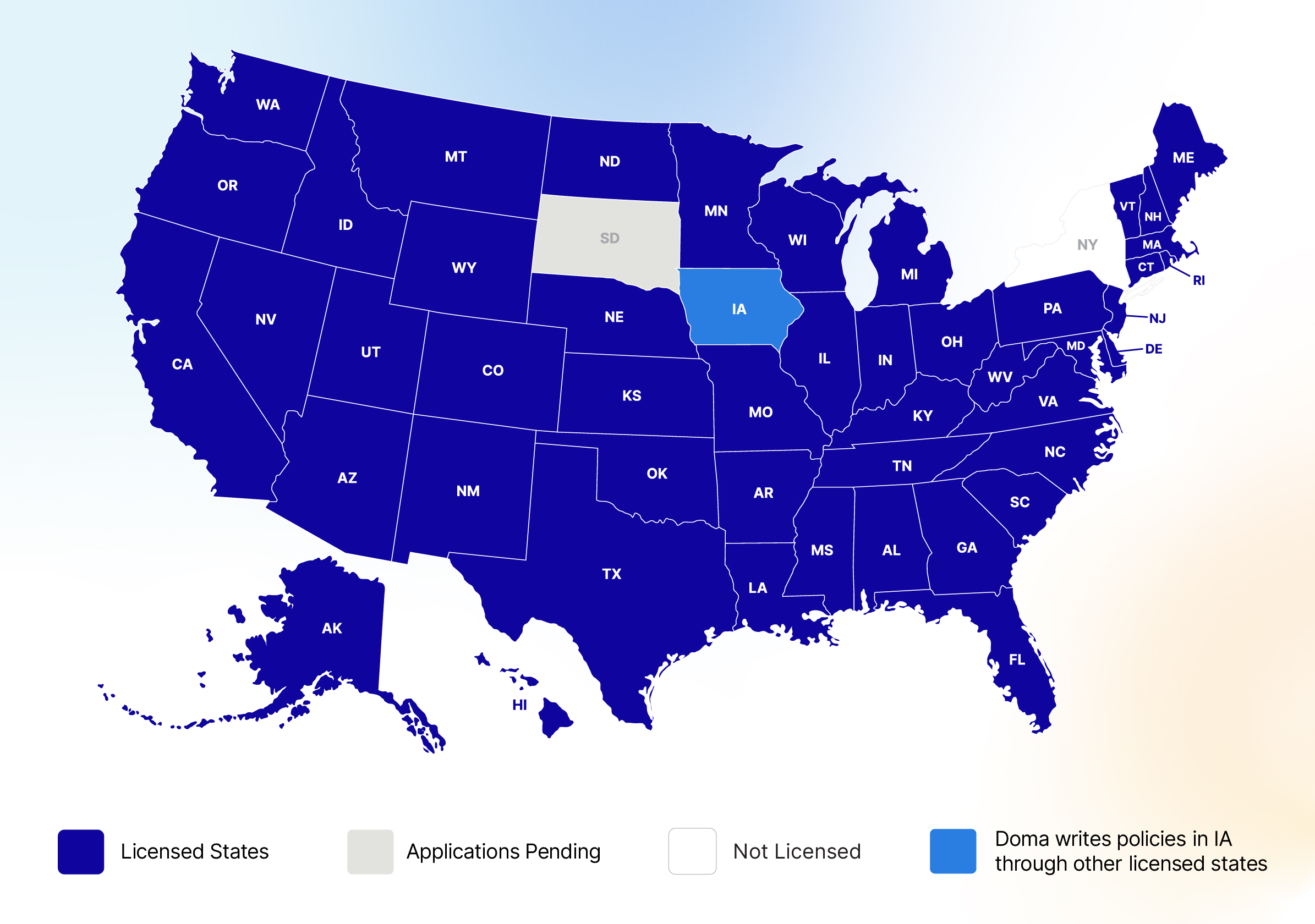Local expertise and innovative technology mean better closings
Centralized Lender Services
Our technology-driven solutions help lenders close faster and deliver better customer experiences
Title Insurance
Our underwriting team has over six decades of experience and one of the industry’s lowest claims ratios
Best-in-class title and escrow
Get in touchTitle Agent Resources
We are where you are
Doma Title Insurance is licensed to operate in 48 states and the District of Columbia.

“With Doma a process that used to take days or weeks now takes less than a few hours.”
Top Ten Lender
President and CEO, of Top Ten Lender
The Doma team … gives my staff the confidence to issue a Doma title policy.
Raymond Manuel
VP of Operations | National Title Solutions, Inc.
Come work with us
We believe that a diverse set of backgrounds, experiences, and perspectives is essential to making our vision a reality and creating a great place to work. We’d love for you to consider joining us on our journey.
Explore Open Positions




